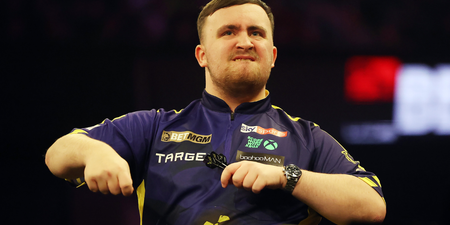Whatever your opinion on Joe Rogan as a commentator, you have to admire his honesty.
In a macho business such as MMA, it can be hard to admit when you’ve gotten something wrong. But when your thoughts about a fight are immediately being broadcast live to thousands around the world, you’re bound to make a few mistakes.
While fans will always complain about commentators, even some fighters – such as TJ Dillashaw – have called out Rogan’s ability to stay neutral while calling fights.
So it’s refreshing to see Rogan open up during a recent interview with Bloody Elbow about the difficulty of not letting his personal relationships with fighters affect his commentary during matches.
Joe Rogan is so biased to TJ right now it is unreal
— B Dietrich (@dietrichb1) January 18, 2016
When asked if he remains unbiased, he said: “I certainly try to be. I had this conversation with Cowboy Cerrone. He’s like, ‘You can be biased if you like somebody’, and I told Cowboy, ‘Dude, I’m biased for you’.
“Sometimes fighters will think that you’re biased against them, because the other person’s won, and they listened to the commentary and think that you were biased.
“If I were going to be biased, it would be towards friends of mine like Cowboy or Ronda or Mighty Mouse or Ian McCall. Ian McCall is a good friend of mine; I love that dude. I am friends with a lot of these guys and I call their fights, and that could certainly present problems, but if it was really gonna present a problem, it would’ve been with the Rousey/Holm fight, but I made sure it didn’t.”
Rogan then took the unusual route of thanking people for criticising him online, citing it as the main reason he has improved as a broadcaster.
“I should point out that the reason I’ve gotten better in my commentary is because of criticism from fans on the internet,” he said. “I appreciate that and in some sense, I owe them for helping me develop as a commentator. That’s just a fact.
“Even the people that have said shitty things, if they don’t make any sense, they don’t hurt. The only time that someone says something about you, the only time those things actually sting, is when they make a good point. You’re like, ‘Wow! That guy just made a good point’.”


















































